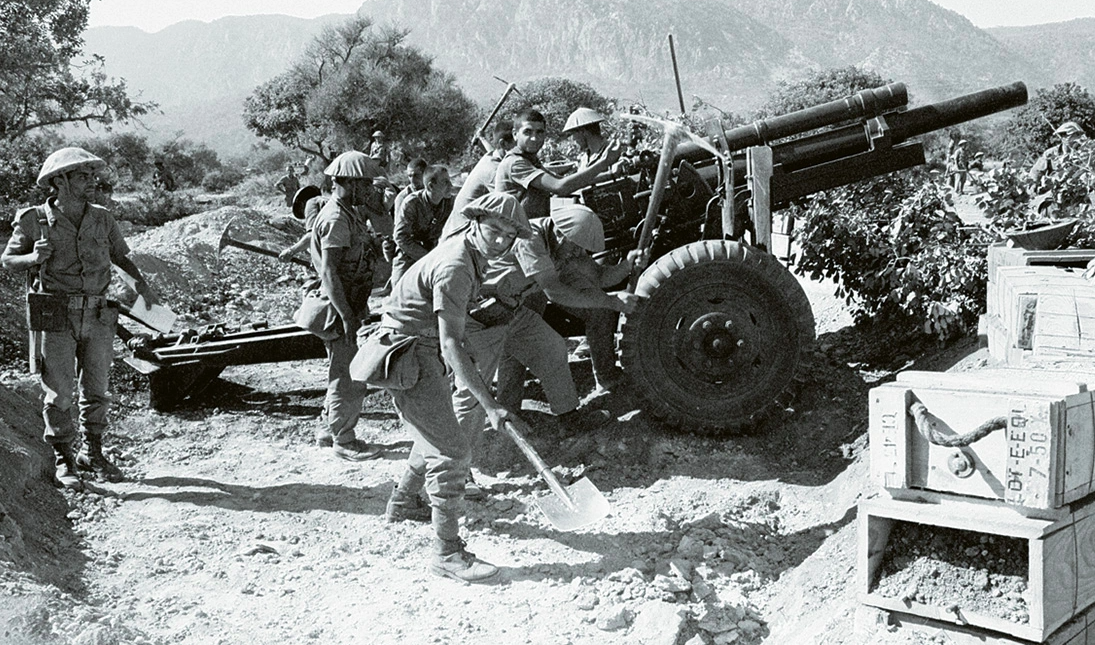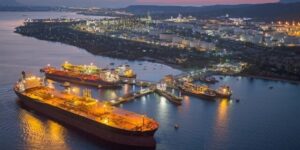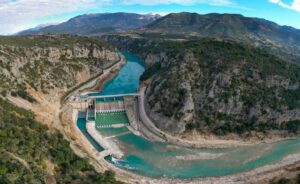On July 20, Prime Minister Kyriakos Mitsotakis and President Tayyip Erdogan will be in Cyprus for separate events, commemorating the 50th anniversary of the Turkish invasion. Their presence, just 11 kilometers apart, highlights ongoing tensions despite attempts at rapprochement between Greece and Türkiye.
Mitsotakis will attend the solemn anniversary events in Nicosia, marking the sad 50th anniversary of the invasion, while Erdogan will be in Occupied Nicosia for the “celebratory” events of what Turkey calls the “peace operation.”
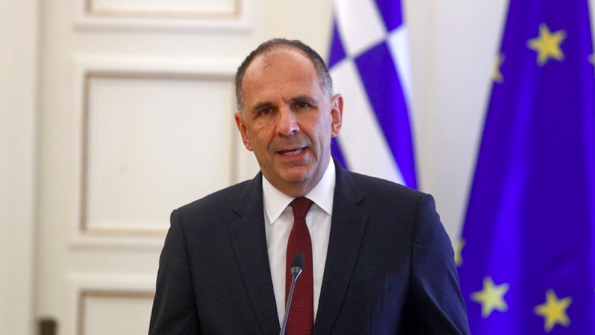
Challenges and Political Tensions
The geographical proximity of the two leaders does little to bridge the political and diplomatic gap between the countries. The Turkish Foreign Minister, Hakan Fidan, recently made provocative statements against Cyprus, accusing it of supporting Israel’s military actions. He further claimed Greece was complicit, using its islands to assist Israel in the Gaza conflict. These accusations aim to undermine the strategic importance of Cyprus and Greece in the Eastern Mediterranean, especially following the US-Cyprus Strategic Dialogue Agreement.
Fidan’s statements, which suggest the involvement of Hezbollah and other terrorist organizations, reflect Turkey’s broader strategy to destabilize regional alliances and question the reliability of Western military infrastructure in Greece, such as the Souda base.
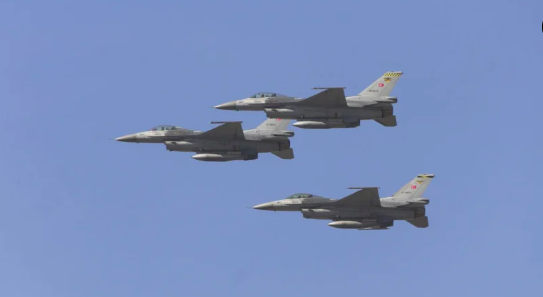
Response from Greece
Greece’s Ministry of Foreign Affairs responded firmly, rejecting any external interference in its foreign policy and condemning Nasrallah’s threats against Cyprus. The response emphasized Greece’s balanced stance on the Gaza crisis.
Erdogan’s Position
Erdogan, following Fidan’s statements, addressed the Muslim world and the international community, condemning Israel and calling for regional non-cooperation with Israel’s actions in Lebanon. This underscores Turkey’s attempt to rally regional support against perceived threats and maintain its influence.
In conclusion, the presence of Mitsotakis and Erdogan in Cyprus on this significant anniversary underscores the complex and strained relations between Greece and Turkey, with ongoing geopolitical maneuvers and diplomatic challenges.
These statements triggered a coordinated operation by nationalist circles in Turkey, who revived the theory of the “militarization” of Cyprus and Greek islands to support Israel’s attacks on Gaza and Lebanon. After 50 years, this theory resurfaced, alleging that the Guarantee agreements for Cyprus had been violated, thereby granting Turkey a “legal” right to intervene to maintain supposed legitimacy on the island.
Following the establishment of “grey zones” using marine parks as a pretext, Turkey promptly demonstrated its interpretation of the Greek-Turkish rapprochement and the Athens Declaration. This was evident in the NAVTEX issued shortly afterward, reaffirming Turkish claims and the “Blue Homeland” doctrine.
During the laying of a communication cable between Israel, Cyprus, and Italy by the vessel “C/S TELIRI,” Turkey seized the opportunity to assert its claims against Greece and Cyprus in the Eastern Mediterranean.
Anti-NAVTEX Issued
Turkey, via the Antalya station, issued a NAVTEX asserting that the Italian research team’s work in areas south of Kastelorizo and Rhodes and east of Crete’s coast concerns the “Turkish continental shelf.” This area corresponds to the disputed “Blue Homeland” map Turkey unilaterally submitted to the UN.
Simultaneously, Turkey issued a series of NAVTEX notices to invalidate Cyprus’ Announcements through the Larnaca Station for the operations of “C/S TELIRI” within the Cypriot EEZ.
In response, Greek authorities issued a NAVTEX for the Italian research team’s work, affirming it pertains to the Greek continental shelf. However, a significant question remains: did the company managing the Italian research vessel approach Turkey before Greece for NAVTEX issuance, effectively endorsing Turkish claims? The Turkish NAVTEX (0592/24) was issued on June 24 at 15:31, and the Greek NAVTEX followed hours later at 00:10 on June 25. This timing suggests the Italian ship might have initially sought permission from Turkish authorities before Greece. It remains unclear whether Athens has taken necessary diplomatic actions towards the managing company and Italy, whose flag the “C/S TELIRI” flies.
Challenges in Greek-Turkish Rapprochement
The immigration issue also tests Greek-Turkish rapprochement. According to the Ministry of Migration, there has been a significant increase in migration flows in Evros and the Aegean islands, the highest since 2019. Thus, the Greek-Turkish rapprochement appears limited to the reduction of violations of Greek airspace and overflights by the Turkish Air Force. This improvement is crucial but also linked to the Turkish Air Force’s problems, including spare parts shortages and a lag in modern fighters compared to the upgraded Greek F-16 Viper and Rafale. Additionally, many Turkish fighters are engaged on fronts against Kurds in Northern Syria and Northern Iraq.
However, the mechanism facilitating visa issuance for Turkish citizens visiting ten Greek islands is positively functioning. During the Bayram holiday, at least 50,000 Turkish tourists vacationed on Greek islands.
The NATO Summit
The leaders of Greece and Türkiye will meet again at the NATO Summit’s 75th-anniversary event (July 9-11) in Washington. There, Tayyip Erdoğan aims to showcase Türkiye as NATO’s second-largest military force after the US, while promoting a unique relationship with the West by criticizing Israel and its supporters, including the US and the EU, and distancing Türkiye NATO’s new tactics against Russia in Ukraine.
Athens acknowledges Erdoğan’s current priorities and the respite in Greek-Turkish tensions but remains aware that the risk of a sudden return to previous hostilities persists.
Ask me anything
Explore related questions
